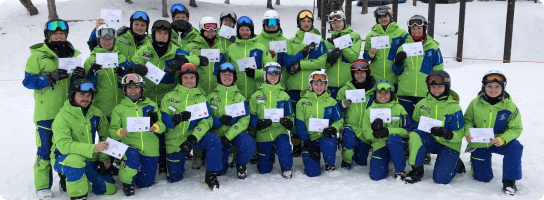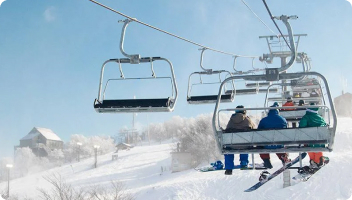Work A Ski Season in Switzerland
Discover information on working a ski season in Switzerland and browse jobs.
View jobs & employersRight in the heart of the European Alps, Switzerland is home to the most European peaks over 4000m and some of the best resorts in Europe. While working a season on a shoestring budget is not Switzerland’s strength, the service, resort and alpine environment are widely considered to be among the best in the world. Thanks to Swiss aversion to development and environmental consciousness, many of the resorts are relatively undeveloped and allow for the natural beauty of the Alps to act as the primary attraction.
Even where development has been allowed, it has usually been restricted such that the villages will often remain car free, quaint and accessible by Swiss red trains. Most resorts will open in December and run until April. Certain resorts have extended seasons due to year-round glaciers. Zermatt, for example, has skiing and boarding 365 days of the year.
Become A Ski/Snowboard Instructor
Spend a full winter training, qualifying and working as a ski/snowboard instructor in Europe, Japan or Canada. All-inclusive packages designed for people with no prior instructing experience.
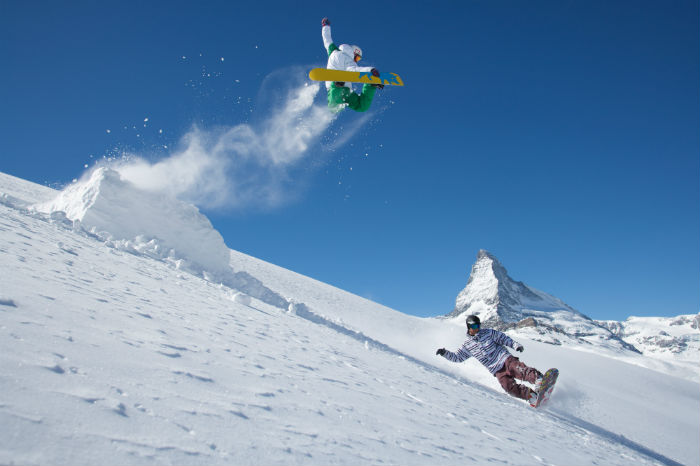
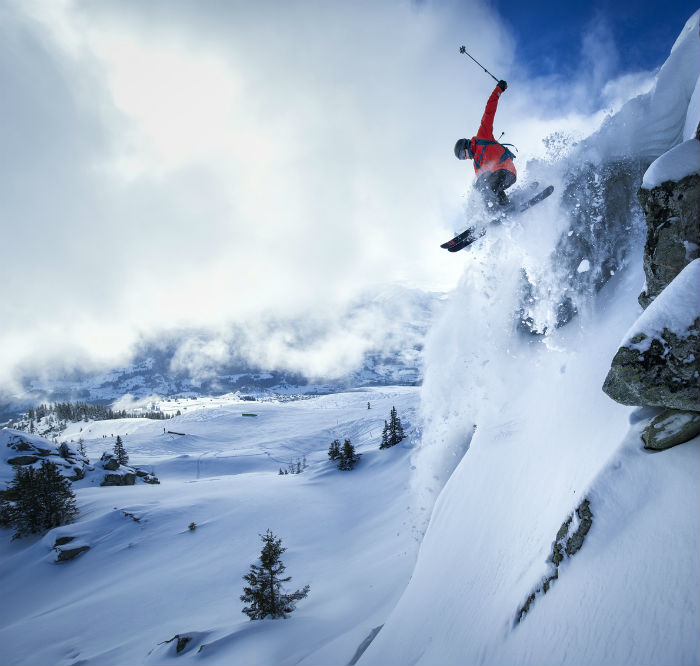
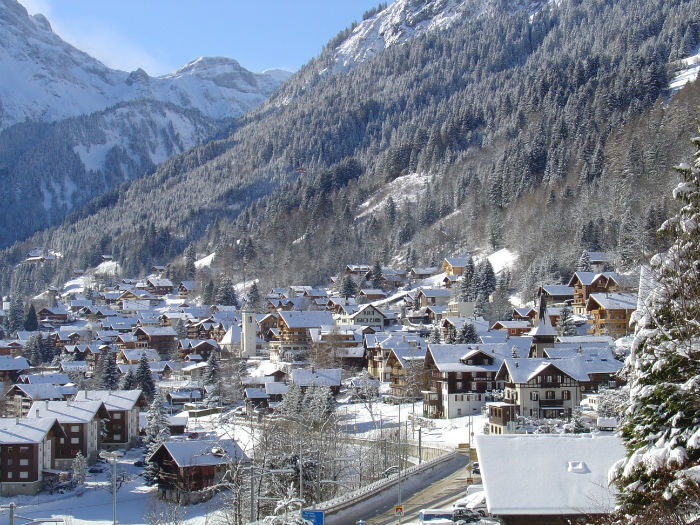
Swiss Resorts Overview
Vaud and Valais
Towards the south-west of the country are the Vaud and Valais regions, lining the Rhone Valley towards Geneva. These regions are on the border with France and the ski resorts here are French speaking. This region is probably the best region in Switzerland and includes such spectacular resorts as:
- Villars
- Crans-Montana
- Champéry
- Leukerbad
- Nendaz
- Saas-Fee
- Verbier
- Zermatt
Bernese Oberland
The Bernese Oberland is a large massif that divides the north of country from the south. The famous Jungfrau region is found in this region, including the popular resorts of
- Grindelwald
- Wengen, and
- Murren
as well as a number of lesser well-known resorts. These resorts are predominantly German speaking.
Graubűnden
To the east of Switzerland is the Graubűnden region, which is the biggest holiday and tourist destination in the country and attracts the biggest crowds. Resorts here include the famous, glitzy resorts of
- St Moritz, and
- Davos,
as well as plenty of less internationally known resorts such as
- Disentis
- Klosters
- Laax
- Pontresina
- Samnaun, and
- Savognin.
Crowds
In general, all major resorts attract more crowds than at similar standing resorts in North America. The Graubűnden region to the east attracts the most tourists and has the biggest lift lines.
The Terrain at Swiss Resorts
Terrain in Switzerland is characterized by huge vertical between the top and bottom of the mountains. The runs at the top are often accessed by massive cable cars, which add to the unique experience of riding in the Swiss Alps. Runs are correspondingly long and stretch for kilometres and kilometres or cruising terrain. The mountains in the French speaking area of the country are probably the best in this regard.
Snow
There are a number of very high resorts which means that the snow is relatively stable each season. There are also quite a few resorts with glacier skiing, meaning that the season extends longer than the winter months.
However, it does not dump down in Switzerland like it does in Japan, Canada and North America. The best average snowfall is 9m (354 inches) at Braunwald, near Zurich, while good averages around the country are at around 6m (235 inches) each season. Switzerland is therefore not known for its huge powder stashes off-piste, with on-piste groomed riding remaining the most popular.
Going Off-Piste
While off-piste riding is still less popular than in North America, it is nonetheless becoming more and more popular.
Avalanche priming of off-piste runs is not conducted in the same fashion as at North American resorts. Generally, on-piste runs have been prepared by the resort but anything off-piste has not been avalanche prepared. It is always advisable to carry avalanche gear if you are hiking off-piste or into the back country.
Finding a Job at a Swiss Ski Resort
Swiss resorts are usually divided between various companies who work at the resort, i.e. the resort is not usually operated entirely by one company as they are in North America. One company may do snowsports, one may do the lifts, one may run restaurants etc. You therefore need to apply through each of these companies separately.
In many cases, resorts will have websites which have jobs for that resort. See the individual resorts guide for further information.
- www.jobs.ch is a general resource for Swiss jobs.
- www.jobup.ch is another general resource for jobs.
You can expect to earn around 3,000 Swiss Francs per month for the lowest paid jobs. But this amount will be heavily offset by how expensive it is to live at a Swiss resort.
Ski & Snowboard Instructors
International applicants with foreign instructing certificates may wish to contact the central Swiss body dealing with ski and snowboard instructors, Swiss Snowports, to convert their foreign instructing certificate or see whether it is recognized. www.snowsports.ch. The website is only in French and German.
Swiss Snowsports
Hühnerhubelstrasse 95
CH-3123 Belp
Tel +41 (0)31 810 41 11
[email protected]
International Applicants – Visas
If from the European Union
Although Switzerland is not part of the EU, persons from the EU Persons from EU or EFTA (European Free Trade Association) ‘member states’, regardless of their qualifications, are allowed to work in Switzerland without needing to obtain a work permit. ‘Transitional’ periods apply for some member states.
If not from the European Union
Unfortunately, there are no working holiday visas for those from outside the European Union. A cash job is often the only option for entry-level type jobs. Each season there are a number of foreign workers who simply arrive at Swiss ski resorts and search for a cash job in a restaurant, bar or shop.
In terms of a sponsored working visa from the resorts, workers from all other states are granted working rights in limited numbers only, and only if they are seen to be ‘well-qualified’. Application criteria for working in Switzerland are detailed in the Federal Act on Foreign Nationals and the Decree on Admittance, Residence and Employment. You would need to contact companies individually about sponsoring you, though it is likely you would get sponsored only if you have specialised skills such as ski instructing, or snow grooming.
Young Professionals Agreement for those from certain countries
Switzerland has established Trainee Agreements with various countries in order to enable young professionals (trainees) to develop their professional and linguistic skills in Switzerland. Work permits can be granted for a maximum of 18 months.
Residents of Argentina, Australia, Bulgaria, Canada, Japan, Monaco, New Zealand, Philippines, Romania, Russia, South Africa, Ukraine and the USA are covered under the agreements.
To qualify as young professionals, nationals of the above listed countries must have completed vocational training or be in possession of a relevant degree. The existing agreement with Canada admits students for working stays in connection with their education, whereas the agreement with Japan admits graduates only. An age limit of 35 years applies for all listed countries, except for residents of Australia, New Zealand and Russia, for whom the age limit is 30.
Young professionals are required to work (or undertake their ‘traineeship’) in the occupation that they have learned or in their study major. Part-time work or self-employment is not permitted.
Young professionals are paid in accordance with the rates that are customary for the location and the industry (See further Art. 30 of the Foreign Nationals Act and Art. 42 of the Ordinance on Admission, Residence and Employment and BFM PDF on the Young Professionals Program ).
Finding a vacancy is your responsibility which you might arrange with a business at a resort. You then submit the working visa application to the Swiss embassy in your home country.
Swiss Culture
The Swiss are notorious for their serious nature and approach to service. You will likely find this most to be the case in the German speaking resorts, while the French and Italian speaking areas are a little more laid back. You will find an excellent standard of English wherever you go, and many businesses and resorts will hire English speakers each season to cater to foreign tourists.
Transport in Switzerland is excellent. You will be able to get to pretty much any resort by means of train or bus, with no need for a car for the season. The Swiss are known for their efficiency and regulation, and you will likely find this both convenient and frustrating over the course of working a winter season.
Après-ski is not particularly huge in Switzerland as it is in France and Austria. Nonetheless, the major resorts will put on a good show after hours and you will not find yourself short of a good night if in the right spots.



